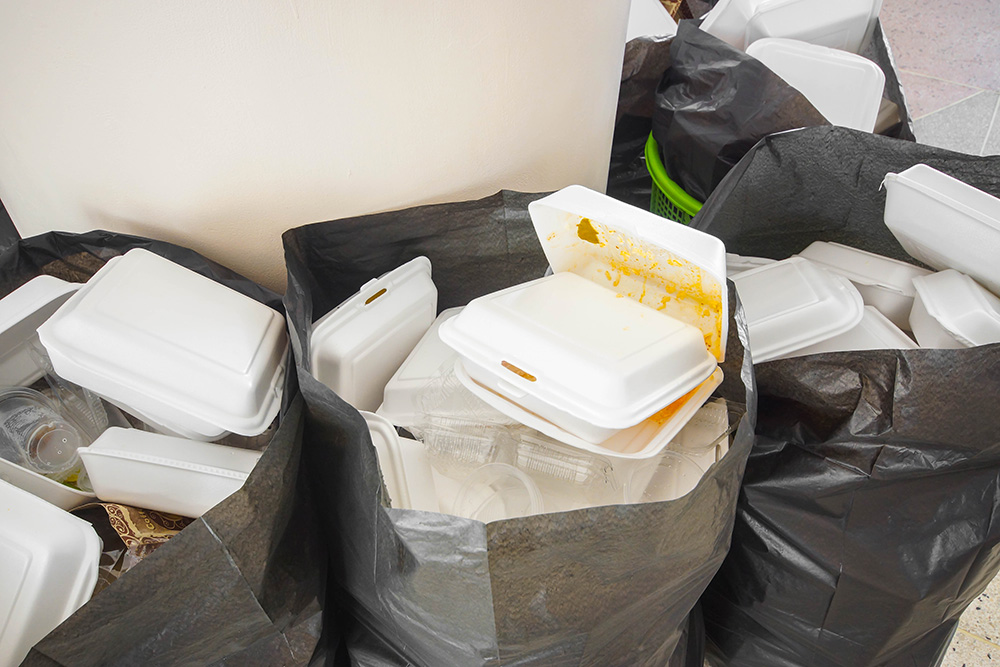
On the list are plastics with undetectable carbon black, PVC, PVDC, EPS, PS, PETG in rigid plastic and oxo-degradable plastics. | wk1003mike/Shutterstock
The Canada Plastics Pact released nine design rules to move toward a circular economy, a document that included a list of “problematic plastics” to avoid.
On the Canada Plastics Pact’s (CPP) list are plastics with undetectable carbon black, PVC, PVDC, EPS, PS, PETG in rigid plastic and oxo-degradable plastics. The CPP also called for no PVC, PVDC, fibers, aluminum foil or PET in flexible packaging.
“The Golden Design Rules aim to change how packaging is designed in the first place to keep it in the economy and out of the environment,” the CPP said. “The nine Golden Design Rules provide a clear framework that aims to drive innovation and scalable actions that will result in less plastic packaging overall and easier to recycle plastic packaging by 2025.”
The rules include using on-package recycling instructions, eliminating excess headspace (or space inside a package that’s not filled with product), reducing plastic overwraps and reducing virgin plastic use.
Increasing value in PET, thermoforms and flexible packaging is also part of the rules. CPP suggests prioritizing transparent and uncolored PET in bottles but also allows transparent blue or green, making sure that adhesives and labels are not problematic for recycling, designing to fit recycling requirements and using mono-material PET, PE or PP.
CPP’s rules are voluntary and are aligned with targets in the Ellen MacArthur Foundation’s New Plastics Economy Global Commitment. The CPP is part of the Ellen MacArthur Foundation’s Global Plastics Pact Network.
An October CPP report found Canada recycles 12% of its plastic packaging. That breaks down to 21% of rigid plastics containers but only 1% of flexibles.
The Canadian pact’s target is to recycle or compost 50% of plastic packaging by 2025. The plans are voluntary, but more than 30 Canadian companies, including 20 CPP members, have agreed to at least half of the rules, according to the CPP website.
CPP’s “problematic plastics” list is similar in many ways to the one published by the U.S. Plastics Pact in January.
More stories about industry groups
- Q&A: With EPR incoming, end markets are crucial
- NY legislative session ends, again without EPR
- Major plastic initiative sets sights on system change